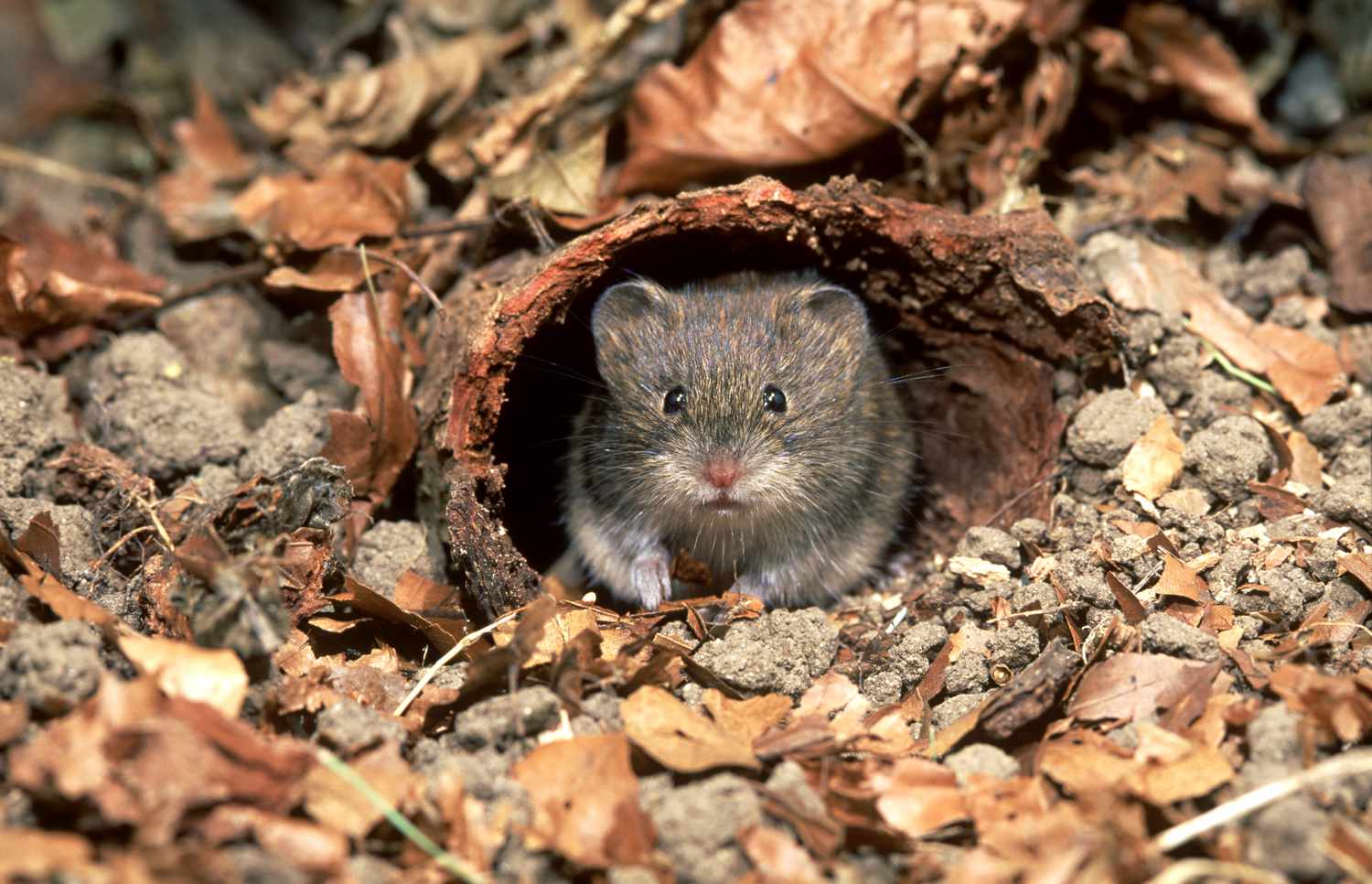I have voles in my garden. While many people may see this as a serious disadvantage and a problem to be solved, I like to look at the positive and recognize the role that these creatures perform in garden ecology.
I like to do the same with all the “pest” species that are present in my organic garden. I appreciate all the wildlife around me and try to understand the parts that each organism plays within the system as a whole. Understanding the ecology better is always the first and most important step in successful organic gardening.
Why Voles are Usually Considered a Problem
Voles, also known as meadow mice, are typically considered a pest species in a garden because they will quickly devour everything from seedlings to overwintering plants in a polytunnel or greenhouse.
Voles can eat all your seeds and seedlings if they are not protected before they get a chance to germinate and sprout. I tend to start most seeds indoors and plant out only when they are a little larger, in part so that I can avoid this issue.
These voracious creatures can also eat your vegetables—brassicas are a particular favorite, and they also enjoy root crops. They will often eat bulbs planted in a garden in the fall. And they can strip your fruit harvest from berry bushes, too. Sometimes, voles can even strip the bark off the base of trees and shrubs.
With thefts rumbling on all year, it is often in autumn when populations rise to the point where voles are often most considered a problem. While voles are frequently mistaken for moles, shrews, and mice, they are often most noticed through autumn and into the winter months, though they are present in many gardens year-round.
The Important Role Voles Have to Play
Christina Radcliffe / Getty Images
While the vole’s vegetarian diet often means that they like to eat the same things that we do, which brings them into conflict with us in our gardens, it is important to recognize how beneficial it can be to have them around.
Voles are, first and foremost, an important food source for foxes, owls, and other wildlife. They are often a crucial link in garden food chains and help, therefore, help maintain the natural cycles and biodiversity of the space.
Another thing to recognize is that while voles may eat your seeds, they will eat weed seeds, too, and this can often be very helpful to a gardener trying to maintain their garden.
By tunneling and burrowing in your garden, voles can also help to aerate the soil, incorporate organic matter into the soil, and keep the soil healthy.
Making Peace with Voles in the Garden
Voles are shy, nocturnal animals, so you may have these in your garden and not realize it at all or have far more of them than you think. But having voles can be viewed as a definite positive, and with the right strategies, it is possible for us to co-exist and share a little.
In an abundant garden, the presence of voles may often mean some losses. But there can be enough for all. The key is to keep voles away from important areas where you do not want them to be, using physical barriers and deterrents while welcoming them to other, wilder parts of your garden. If you provide plenty of food, shelter, and habitat for voles in areas where you want them and keep things less appealing where you do not want them, it is much easier to live side by side with these creatures.
Stopping Voles From Devouring Plants
Adding cloches over their favorite snacks and sprinkling cayenne pepper around vulnerable plants is an effective way to stop voles from doing too much damage.
I have voles living in my forest garden, where I don’t mind them as they take only a little share of the harvest and provide the benefits mentioned above. I also allow them to live and dine in the wilder area around my wildlife pond.
With the benefits they provide, having some vole-friendly spaces can help keep them around while distracting them from doing damage to the things we don’t want to share. In the end, with a little management, voles can be a boon to a garden’s ecology.
